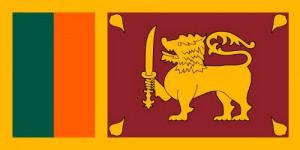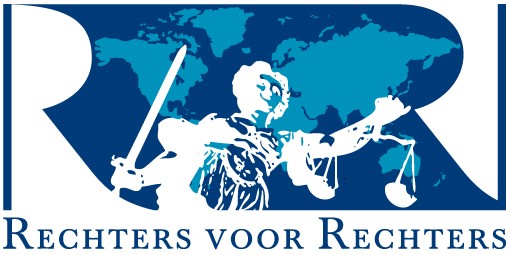 Over the last years there have been more and more reports that the independence of the judiciary in Sri Lanka has been under pressure. Judges who took decisions that were not politically expedient had a difficult time. This cumulated into the dismissal in January 2013 of the Chief Justice of the Sri Lankan Supreme Court, Mrs. Bandaranayake. This dismissal was politically motivated. She was replaced by Mohan Peiris, who had very close links with the political leadership at the time. This was reason for Judges for Judges to concern ourselves with the fate of our fellow-judges in Sri Lanka. In an open letter dated January 23, 2013, signed by more than 50 (prominent) judges worldwide, including a number of Dutch judges, the International Commission of Jurists, labelled the dismissal as ‘illegal’.
Over the last years there have been more and more reports that the independence of the judiciary in Sri Lanka has been under pressure. Judges who took decisions that were not politically expedient had a difficult time. This cumulated into the dismissal in January 2013 of the Chief Justice of the Sri Lankan Supreme Court, Mrs. Bandaranayake. This dismissal was politically motivated. She was replaced by Mohan Peiris, who had very close links with the political leadership at the time. This was reason for Judges for Judges to concern ourselves with the fate of our fellow-judges in Sri Lanka. In an open letter dated January 23, 2013, signed by more than 50 (prominent) judges worldwide, including a number of Dutch judges, the International Commission of Jurists, labelled the dismissal as ‘illegal’.
Also, the International Bar Association’s Human Rights Insitute (IBAHRI), in a rapport dated March 2013, reached hard conclusions about the dismissal procedure and the independence of the Sri Lankan judiciary. Despite sustained criticism, the Sri Lankan authorities seems to take no notice. In the course of 2014 things seemed to be deadlocked. Mrs. Bandaranayake remained a citizen with no position in office, no income, while the state of the judiciary in general seemed to deteriorate (see for a selection: www.icj.org/?s=+Shirani+Bandaranayake). In October 2014 the United Nations’ Human Rights Committee in its Concluding Observations also commented critically about the dismissal of judge Bandaranayake and made the following recommendation to Sri Lanka ($5):
(a) Take concrete measures to ensure the protection of members of its judiciary from improper influences, inducements, pressures, threats or interferences, including those of the executive and/or legislature of the State party.
Currently, following elections on January 8, 2015, a turning point seems to have been reached. Newly elected president Maithripalsa Sirisena had made good governance in Sri Lanka an important issue in his election campaign, including reinforcing the parliament and the judiciary. His first acts in office prove that these were not mere words. He was sworn in, not by the aforementioned Mohan Peiris, the successor to Mrs. Bandaranayake, appointed by the previous government, but by the Supreme Court’s longest serving member. In his first week in office, he immediately spoke with the Sri Lankan Bar Association about honourably re-instating Bandaranayake and the possibilities of removing her successor, appointed by the previous government.
 It was a special moment when Dr. Bandaranayake retook her position as Chief Justice on January 28, 2015. This was made possible by the current government´s message to Mohan Peris, stating that his appointment had been invalid from the beginning in light of the illegality of Dr. Bandaranayake´s dismissal. On January 29, the day after her reinstatement, Dr. Bandaranayake retired. The next day Judge Kanagasabapathy Sripavan succeeded her in office. Worth mentioning is that in an address to Parliament, the new Minister of Foreign Affairs explicitly mentioned the ICJ´s letter of January 2013, as a part of the ´international backlash´ that followed Bandaranayake´s dismissal. See the following article [www.dailynews.lk/?q=local/removal-mohan-peiris-office-chief-justice].
It was a special moment when Dr. Bandaranayake retook her position as Chief Justice on January 28, 2015. This was made possible by the current government´s message to Mohan Peris, stating that his appointment had been invalid from the beginning in light of the illegality of Dr. Bandaranayake´s dismissal. On January 29, the day after her reinstatement, Dr. Bandaranayake retired. The next day Judge Kanagasabapathy Sripavan succeeded her in office. Worth mentioning is that in an address to Parliament, the new Minister of Foreign Affairs explicitly mentioned the ICJ´s letter of January 2013, as a part of the ´international backlash´ that followed Bandaranayake´s dismissal. See the following article [www.dailynews.lk/?q=local/removal-mohan-peiris-office-chief-justice].
The ICJ wrote to us: ´Again many thanks to all judges who signed, including a large contingent of members of Judges for Judges!´
Gladly, the file on Judge Bandaranayake could be closed. Nonetheless, our colleagues who have been concerned with Sri Lanka in particular (Tom Wolters, Court of Appeal Arnhem-Leeuwarden, and Rik Boekaar and Geeske Eelsing of the Court North Netherlands) will continue to monitor the situation of the judiciary.
